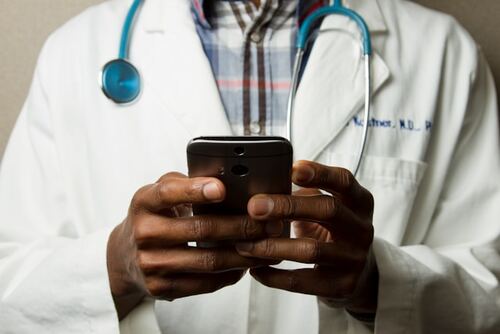Introduction to Personalized Health Devices
Personalized health devices have rapidly become integral to modern wellness strategies, providing an unprecedented ability to monitor and improve personal health. These gadgets, ranging from simple fitness trackers to sophisticated ELD device setups, redefine how individuals approach their health management. The shift towards technological incorporation in health has allowed for a more proactive and preventative approach to healthcare. By enabling the regular tracking of vital health metrics, these devices empower users to make informed decisions that can significantly enhance their lifestyles and overall well-being.
The Rise of Wearable Technology
In recent years, wearable technology has undergone a remarkable transformation. What began as basic step-counting gadgets have evolved into comprehensive health monitors capable of measuring a wide range of indicators—from heart rate variability to blood oxygen levels and beyond. This expansion in functionality has been fuelled by advancements in sensor technology and electronic miniaturization. The convenience and accessibility of wearables like smartwatches and fitness trackers have made them a staple in the tech arsenal of health-conscious individuals around the globe. According to Forbes, this sector is expected to continue its upward trajectory, with the wearable technology market poised for substantial growth in the near future.
Key Features of Modern Health Devices
The modern personalized health device is a marvel of technology, packed with features that provide valuable health insights to users. Key among these is the ability to collect data in real-time and store it on cloud-based platforms, ensuring easy access and analysis through user-friendly interfaces. AI-driven analytics enhance these offerings by delivering personalized insights that help users tailor their health regimens. Comprehensive compatibility with smartphones enables effortless monitoring of health metrics like heart rates, sleep patterns, and even emotional levels, thus granting users a holistic view of their health at their fingertips.
Benefits of Personalized Health Monitoring
One of the primary benefits of incorporating personalized health devices into daily life is a deeper understanding of one’s health, leading to improved habits and outcomes. These devices are designed to motivate users by setting achievable goals and providing real-time feedback on progress, thereby fostering a sense of accountability. Health practitioners also benefit; with access to detailed health data, they can deliver more precise diagnoses and tailor treatment plans to align with a patient’s unique health profile. This coupled approach—from user empowerment to professional healthcare integration—makes personalized health monitoring a cornerstone in modern healthcare.
Addressing Privacy and Data Security Concerns
The distribution of personal health data through these devices introduces concerns about privacy and data security. Consumers are increasingly aware of potential vulnerabilities and are advised to understand how devices manage their information. Initiatives and regulations, such as those advocated by organizations like HIPAA, are critical in establishing and maintaining data protection standards. These regulatory frameworks ensure that as users adopt these technologies, their privacy is safeguarded, allowing them to enjoy the benefits without compromising their personal information.
Real-Life Success Stories
Numerous success stories have emerged, highlighting the transformative impact of health devices on individual lives. Many individuals with chronic conditions have credited constant monitoring and feedback with significantly improving their health management. For instance, a corporate executive was able to control hypertension with timely alerts and lifestyle adjustments recommended by his device. Similarly, a fitness enthusiast used detailed sleep data from a wearable to establish healthier sleep habits that enhanced her energy levels and overall productivity in her daily pursuits.
Future Trends in Health Technologies
As personalized health devices continue to evolve, exciting trends and innovations are on the horizon. They are expected to harness advancements in artificial intelligence and machine learning to provide even more precise health insights tailored to individual needs. The development of biosensors capable of early disease detection heralds a new dawn in personal healthcare, potentially allowing users to prevent issues before they develop into significant health concerns. The integration of these advancements with existing medical practices promises a future where personalized health technologies play a central role in comprehensive health strategies on a global scale.
Conclusion
In conclusion, the advancement of personalized health devices represents a significant leap forward in how individuals manage and optimize their wellness. By utilizing these technologies, users are empowered with insights that were previously difficult, if not impossible, to obtain. This personalization and accessibility shift not only supports healthier lifestyle choices but also informs broader healthcare objectives, heralding a future where technology and health converge harmoniously to achieve optimal wellness outcomes.




